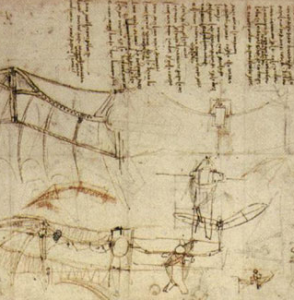The 2013 « European Summer School in Digital Humanities, » focusing on Culture & Technology, is taking place at the University of Leipzig, 22 July-2 August, 2013 (see http://www.culingtec.uni-leipzig.de/ESU_C_T/node/97/).
 It includes a workshop on « Art History: Research and Teaching Going Digital » (see http://www.culingtec.uni-leipzig.de/ESU_C_T/node/247), organized by Elli Doulkaridou (PhD candidate in art history at the University of Paris I Panthéon-Sorbonne and a research assistant at the Institut national d’histoire de l’art) and Elaine Hoysted (doctoral candidate at University College, Cork).
It includes a workshop on « Art History: Research and Teaching Going Digital » (see http://www.culingtec.uni-leipzig.de/ESU_C_T/node/247), organized by Elli Doulkaridou (PhD candidate in art history at the University of Paris I Panthéon-Sorbonne and a research assistant at the Institut national d’histoire de l’art) and Elaine Hoysted (doctoral candidate at University College, Cork).
This joint workshop aims to question research and teaching practices in the field of art history in the digital age.
The first part of this course will be dedicated to investigating the challenges and opportunities that have emerged in the digital realm for scholars in art history. The second half will focus on an analysis of how these resources can be utilized as effective teaching and learning tools within the academic system. The fact that this is going to be a joint course will allow us to focus on each theme but also bring them together during the collective discussions that will accompany the end of each course.
This workshop does not intend to propose technical training in the use of dedicated tools or encoding languages. Its purpose is to foster a collaborative reflection, in matters of art historical research and teaching methodology.
We will be questioning the notion of digital art history through the study of various digital corpora, produced in different fields of art history, such as image databases, digital catalogs, scholarly critical editions, etc. Part of the course will also be dedicated to the commentary and collective debate of recent studies.
Over the past decade, lecturers have begun to utilize online resources and databases to enhance their students’ learning and knowledge of particular areas which previously they had limited access to. These resources are increasingly becoming recognized as fundamental tools for the dissemination of recently published art historical research to third-level students. This course will explore how the various resources can be used to aid lecturers and tutors to teach the discipline to students at various levels in university (undergraduates and postgraduates) as well as other concerns about the issues of resources’ authenticity and copyright among others. The most recent texts on online resources as effective tools for teaching and learning will be discussed to provide students with a theoretical framework for this part of the course.
Another area which this course will explore is the use of online resources and multi-media in the practice of art itself. A number of contemporary artists’ work will be discussed and we hope to invite a group to join us for one of the workshop sessions to discuss their work and how technology has helped them creatively.
Interested participants should register here: https://www.conftool.net/esu2013/ by submitting a brief CV and letter of motivation. Project presentation proposals and posters are welcome but not obligatory.
URL de référence : http://arthist.net/archive/5542.

Leave a Reply
You must be logged in to post a comment.